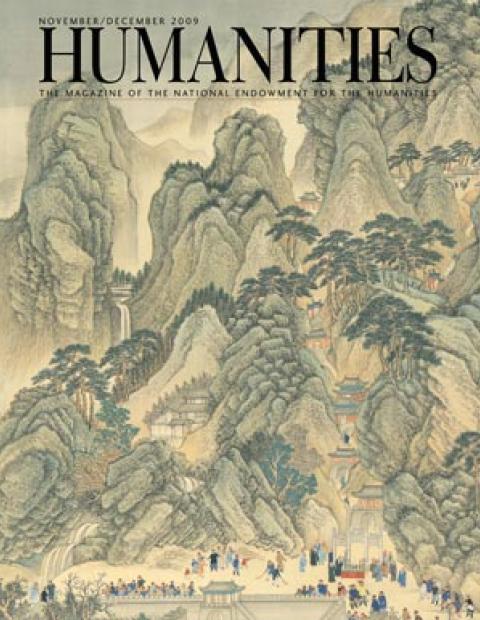“Bridging cultures” is the watchword here at NEH since the appointment of Jim Leach to the chairman’s office. So it’s fitting that the HUMANITIES Conversation with him should appear in this issue, with its cover story about an effort to bridge Western scholarship and Eastern history as well as old art and new technology.
The cover story is a picture essay on the Chinese handscrolls painted for the Southern inspection tours of the Kangxi emperor and, his grandson, the Qianlong emperor. Though I nodded knowingly when a colleague mentioned this elaborate effort to digitize these enormous scrolls, I actually knew nothing about them. And the only book I could find on the general subject was in French, which I can’t read. Fortunately, the dazzling website where they can be viewed contains excellent commentary from Maxwell Hearn of the Metropolitan Museum of Art, whom Meredith Hindley interviewed along with other experts on Asian art for this article, “Imperial Scrolls of China.”
Ignorance was, in fact, inspiration for General Lew Wallace, Amy Lifson notes in this issue, when he began the research that led to Ben-Hur: A Tale of the Christ, the bestselling American novel of the nineteenth century. Its publication caused an international sensation. Pastors told their flocks to read this book. General Grant could not put it down. A stage production ran for more than twenty years, to say nothing of the Charlton Heston film released fifty years ago.
Ignorance, you might say, is curiosity caught unawares. Although a fan of classic forties and fifties crime fiction, I knew nothing about Jim Thompson before watching Soul of a People, an NEH-funded documentary on the Federal Writers’ Project. The film quotes a knifelike one-liner of Thompson’s: Oklahoma City “was a big town built upon the ideas of still smaller men.” Not that I have anything against Oklahoma City, mind you, but I thought, I’ve got to check him out.
Now I am halfway through Thompson’s novel The Killer Inside Me, feeling so trapped and frightened that I almost wish I had never heard of him. Still, I can warmly recommend David Geffner’s surprising essay on how the author’s experience in the WPA helped shape the violent and harrowing fiction that later made him famous, and led to such movies as The Getaway and The Grifters.
Curiosity is a subject dear to Chairman Leach, who has called it an inalienable right. In the Conversation, Leach describes the course of his career, from when he was a kid dreaming of the Foreign Service to his resignation from the Service in the Saturday Night Massacre in 1973, through his thirty years in Congress, and up to what he’s thinking about today.
And there is more: an essay on Bronson and Louisa May Alcott, stories about Florida cowboys and Thanksgiving, and much else worth knowing about.

